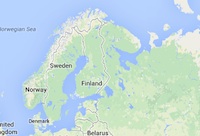Intercultural Blended Design Considerations: A Case Study of a Nordic-Baltic Course in Autism Intervention
 Specialized educational programs previously unavailable to many students are now accessible to students spread throughout the world. In particular, this globalization presents new opportunities and challenges for universities educating professionals in the field of autism treatment. The aim of the present case study is to analyse the experiences of students who participated in an intercultural graduate level blended learning course in applied behaviour analysis with an autism focus. Students were enrolled in universities in four Nordic-Baltic countries. Country based focus group interviews and surveys were used to explore student’s experiences and perceptions. Results indicate that access to expertise and interacting with other cultures were noted to positively affect learning experience. Risk for cultural divide due to discrepancies in technology, differing pedagogical traditions, and understanding of English were also reported. Implications regarding the potential risks and benefits inherent in intercultural blended learning courses are discussed and suggestions are offered for enhancing the success of such courses.
Specialized educational programs previously unavailable to many students are now accessible to students spread throughout the world. In particular, this globalization presents new opportunities and challenges for universities educating professionals in the field of autism treatment. The aim of the present case study is to analyse the experiences of students who participated in an intercultural graduate level blended learning course in applied behaviour analysis with an autism focus. Students were enrolled in universities in four Nordic-Baltic countries. Country based focus group interviews and surveys were used to explore student’s experiences and perceptions. Results indicate that access to expertise and interacting with other cultures were noted to positively affect learning experience. Risk for cultural divide due to discrepancies in technology, differing pedagogical traditions, and understanding of English were also reported. Implications regarding the potential risks and benefits inherent in intercultural blended learning courses are discussed and suggestions are offered for enhancing the success of such courses.
European Journal of Open, Distance and E-Learning







